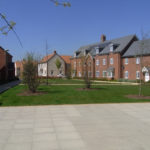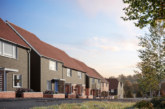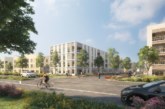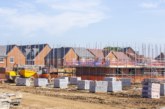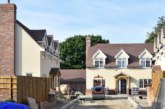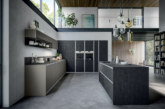 Andrew Raven, a director in Savills urban design studio, considers the recommendations set out in a new report published by the Building Better, Building Beautiful Commission.
Andrew Raven, a director in Savills urban design studio, considers the recommendations set out in a new report published by the Building Better, Building Beautiful Commission.
‘Living with Beauty’ is the much-anticipated final report of the Building Beautiful Commission, an independent body set up to advise Government on ways to promote and increase the use of high-quality design in new developments and neighbourhoods.
The report, published on 30th January, follows hard on the heels of a national audit of housing quality, released earlier in the month. Conducted by University College London and co-funded by the Place-Alliance and the Campaign to Protect Rural England (CPRE) the audit assessed 142 schemes from across England. Three quarters of schemes audited were ranked as either ‘poor’ or ‘mediocre’ – an indictment of placemaking in England.
‘Living with Beauty’ makes policy proposals in eight different areas, based on three underpinning aims for the planning system: to ask for beauty, refuse ugliness and promote stewardship.
A key recommendation is that beauty should be embedded in the planning system. Recent changes to both the Planning Practice Guidance (PPG) and the National Design Guide, alongside the soon-to-be published National Model Design Code, are fundamental here. These measures will require both local authorities and developers to put additional skills in place, and argue for a ‘Chief Placemaker’ in every senior council team, and a member of Cabinet responsible for placemaking.
The report envisages bringing consultation on the design of sites earlier in the planning policy process. In practice it is often difficult to engage communities on design quality of proposals until sites are allocated for development. Councils would be required to consult on and develop their own detailed policies on what good quality design looks like in their area. Developers will need to engage in these consultations, and may also need to show local people how they have considered their local history, character and identity.
The proposals reflect previous discussions between the Secretary of State, the policy exchange and Boys Smith, the author of ‘Living with Beauty’, who advocate ‘gentle density’. This would mean densities higher than currently being delivered on greenfield sites, and lower than those achieved on super-dense brownfield sites. If empowered, the proposals would require housebuilders to develop new housing typologies, and councils to review design policies.
Further proposals include changes to tax regimes to incentivise long-term ownership of sites and alignment of VAT on housing renovation and repair with new build to encourage the re-use of existing buildings. The report also calls for better education for both professionals and councillors, as well as management changes to better enable the delivery of high quality places, with performance targets to measure well-being and beauty potentially including a ‘popular support’ element. Meanwhile, the greater emphasis on access to nature and green spaces proposed in the National Planning Policy Framework (NPPF) is aligned with the evidence on the need for better air quality, the benefits to health of green spaces, and the commitment to zero carbon by 2050.
Coupled with the outcomes of the Letwin Review, and alongside the Beauty Commission’s previous work, we can expect this agenda to inform changes to the planning system over the next 18 months. Developers and housebuilders of all types will need to increase the range of placemaking skills they have available, and will need to develop those skills over the coming months to enshrine design quality and beauty in all that they do.
We at PHPD hope that you are coping well with the current circumstances. We understand that COVID-19 has had a huge effect on construction businesses, bringing delays and financial repercussions to owners and workers alike.
We’ve heard from the politicians and now we want to hear from you.
Tell us how this pandemic has affected you and your business and we will share your story. Email us at phpd@hamerville.co.uk or tweet us at @phpdonline

